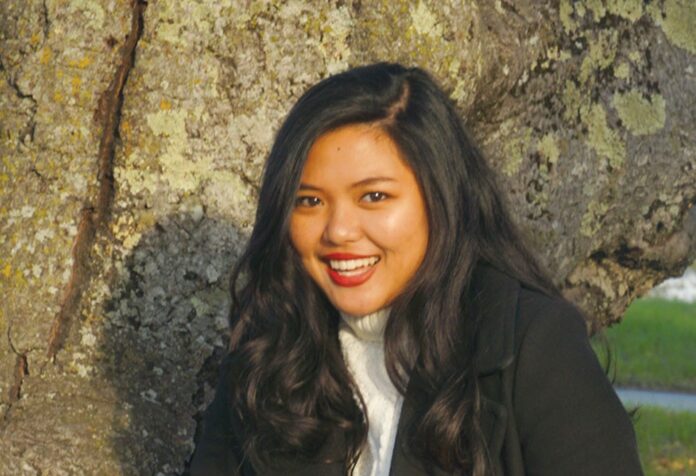When I was 7 years old, my implicit biases against Black people began to show. When talking about Black people, I would opt to say African American or whisper the word “Black” as if the word was a derogatory slur rather than a term as basic as “white,” to describe one’s race.
When I was 17 years old, a friend asked me if I would ever date a Black guy. I hesitated before saying, “Yes.”
When I was 19 years old and interned at a documentary film company that focused on racial relations, I drafted a Tweet that used the hashtag #AllLivesMatter when Zachary Hammond, a young white teenager, was shot by police. My supervisor kindly responded me that although my intent was good and what had happened to Zachary was tragic, #AllLivesMatter contradicted the significance of #BlackLivesMatter.
Now I cringe at my transgressions, ashamed I could have ever been so wrong. And unfortunately, many of us remain guilty of implicit biases, even those like me who grew up in a diverse, progressive community like the Bay Area. It shows in the way women cross the street when a Black man walks in their direction, in the way parents lock car doors as they drive their children through predominantly Black neighborhoods such as the Fillmore District and Oakland, and in the way children associate “black” with bad and “white” with good.
Yet, the first step to address the brutality and injustices towards Black people is to address our own implicit biases, regardless of how uncomfortable that may feel, in spite of how ugly they are to face.
Once I acknowledged the implicit biases I held, I questioned why. Racism is taught. Prejudice is taught. To fear or think of someone in a certain way because of how they look, is taught. I was taught to regard Black people as anything but equal to white people—not because the adults in my life were racist or because I lived in a conservative town, but for countless other reasons. For one, the news and entertainment I watched growing up highlighted Black men as violent, intimidating and angry or comedic; lesser caricatures. They were more often than not the criminals in Law & Order or the funny sidekick who only existed to serve the story of the white protagonist.
Secondly, despite the “diversity” of my suburb, only 2.5 percent of residents are Black. As I recall, there would be at most two Black children in my class, if any at all. I could typically count all the Black students in my school of 500 children on both my hands. This reality ties into the fact that the histories of redlining remain prevalent and integration movements have been slow to act, particularly with the Bay Area’s gentrification and the segregation of Black communities from neighborhoods like the one I grew up in.
This is not to excuse my former racial biases, but to understand how they are frequently produced within non-Black people. These are deep-seated, complex issues that we must address and realize; they bolster our underlying prejudices and racism.
I want us to get out of this cycle, yet I realize that my previous passivity was a sign of complicity for a system that inherently seeks to oppress Black people. I want to break this perpetuity of violence, but did not actively seek to do so. I let the excuses of school, work and my own ambitions stop me from doing more.
For my failure, I am so, so, so sorry. Yes, some, like me, feel guilty and can apologize for our past faults and inaction. But this is insignificant, paralyzing and futile.
Oscar Grant, Eric Garner, Mike Brown, Trayvon Martin, Sandra Bland, Philando Castile, Tamir Rice, Jordan Davis. Atatiana Jefferson, Ahmaud Arbery, Breana Taylor, George Floyd. I, like millions of us, am tired of hearing tragedies like theirs occur, time and time again. Yes, we non-Black people are exhausted, but this weariness pales in comparison to the suffering of Black people who are depleted, enraged, terrified and heartbroken that they and their loved ones are murdered senselessly for something as arbitrary as their skin color.
So we need to keep going and the first step is recognizing our implicit biases and pointing these out to our peers and loved ones. However, despite the frustration of what we feel people have yet to learn, shaming them will not encourage them to evolve and grow. I did not learn because people screamed at me about how ignorant I was (though I understand the urge to do so and wish I could yell at my younger selves). I learned because people remained patient and were willing to discuss with me why I was wrong.
We should not leave this obligation solely to Black communities; all of us who have gone through this process of shedding our own racial biases should take it on. These responsibilities to help wholly eradicate racism and implicit prejudices are ones all of us must bear equally, long after the protests end, the stream of woke social media posts stop and the news on police violence pauses. We must continue to listen and to learn from Black voices and leaders, to speak out, to struggle, to shoulder the fight as our own. Please hold me accountable for this. We are all accountable for this now. If no one is coming to save Black people, no one will save us all.
Katrina Fadrilan worked as a staff writer for The Daily Californian and has published works on a variety of platforms including the San Francisco Chronicle, East Bay Express and HuffPost.









